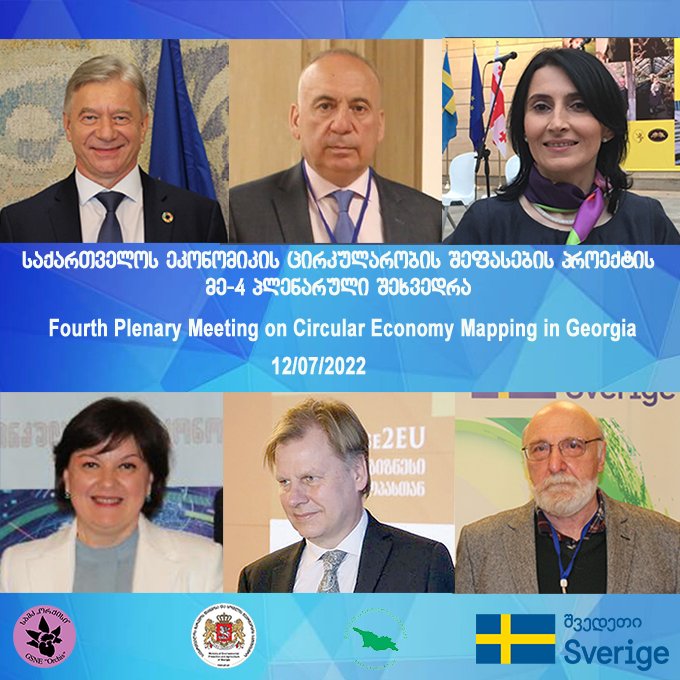საქართველოს ბუნების მკვლევართა კავშირი „ორქისი" || Georgian Society of Nature Explorers "Orchis"
+995 599 77 52 37 ; +995 (032) 2 38 51 99
Fourth Plenary Meeting on Circular Economy Mapping in Georgia
- Home
- Fourth Plenary Meeting on Circular Economy Mapping in Georgia

On 12th July 2022, the fourth Plenary Meeting on Circular Economy Mapping in Georgia will be held in Tbilisi to bring together the Inter-Ministerial Coordination Board of the Government of Georgia and the Task Team of the Georgian Society of Nature Explorers “Orchis” (GSNE “Orchis) for Circular Economy Mapping in the frames of the project ‘To Map Circular Economy in Georgia’ supported by the Government of Sweden, and implemented by GSNE “Orchis” in close cooperation with the Government of Georgia.
• In a circular economy, products are designed for durability, upgradeability, reparability and reusability, with a view to reusing the materials from which they are made after they reach the end of their life. Consumers use products efficiently and discard them in such a way that they can be reused or, if this is technically or economically unfeasible, recycling operators turn them into secondary materials that can enter a new production-consumption cycle.
• The transition to a circular economy requires a radical change in the way we produce and consume. This needs to be supported by the whole system, from enabling technolo¬gies and infrastructures to a form of market organisation that facilitates collaboration along and across value chains and a form of governance and regulation that encourages companies to adopt circular approaches to social norms that make the circular production-consumption patterns socially preferable.
• Georgia has recently embarked on an accelerated path to transition to the circular economy. With the concerted efforts of the Government, civil society organisations, academia and international partners, Georgia initiated the development of the circular economy strategy and roadmap aimed at multidimensional approach including production, consumption, waste management, secondary raw materials, innovation, investments as well as ongoing initiatives, in different sectors, by different players, and at different stages of the value chain or different stages of development.
